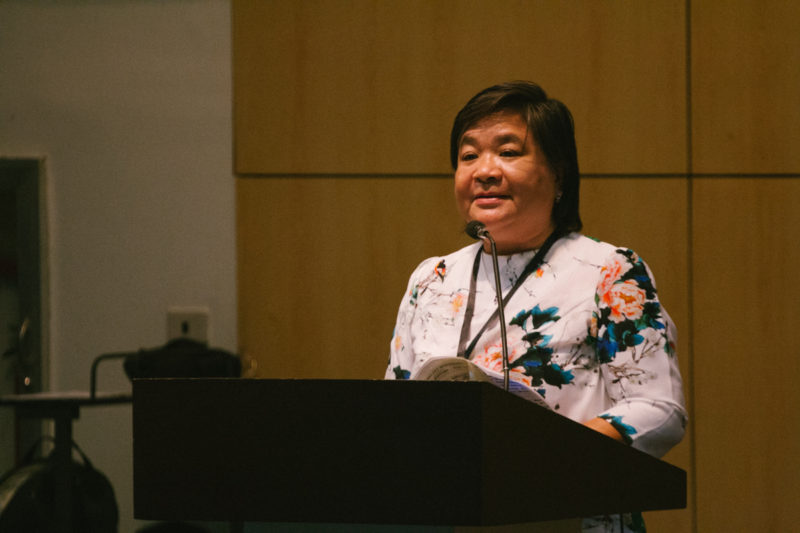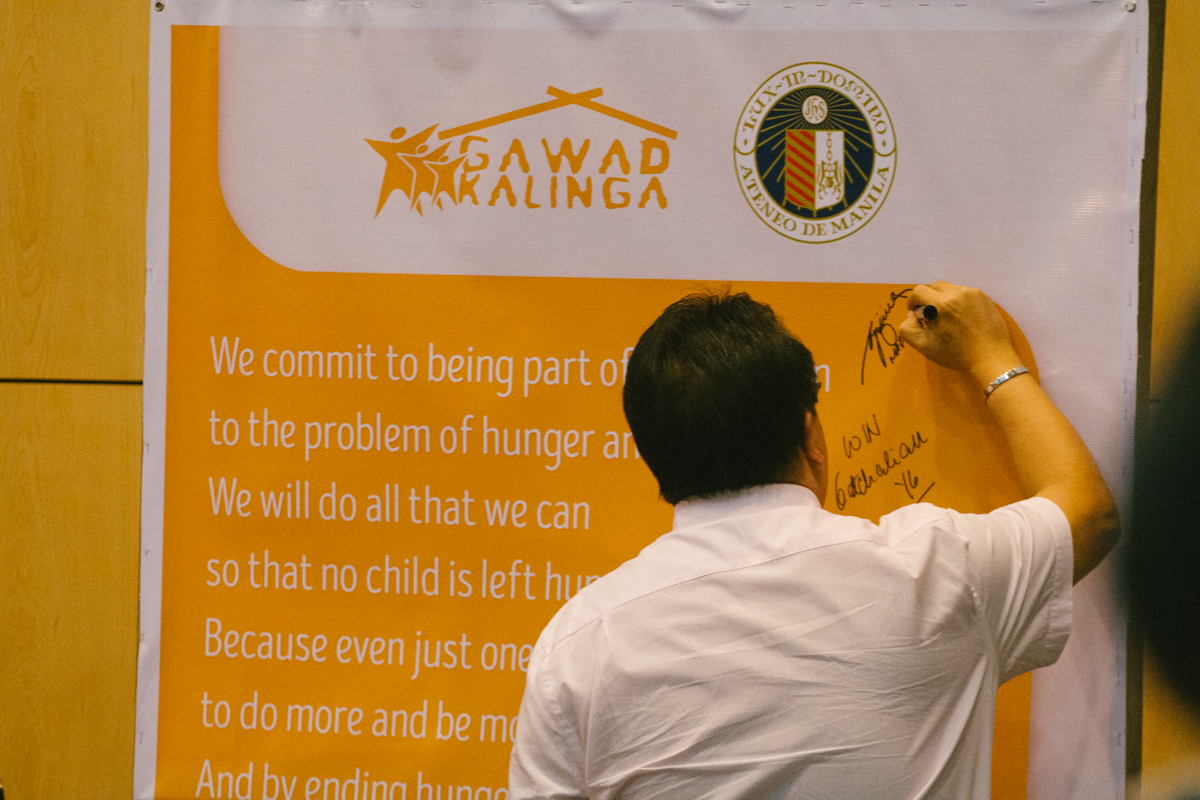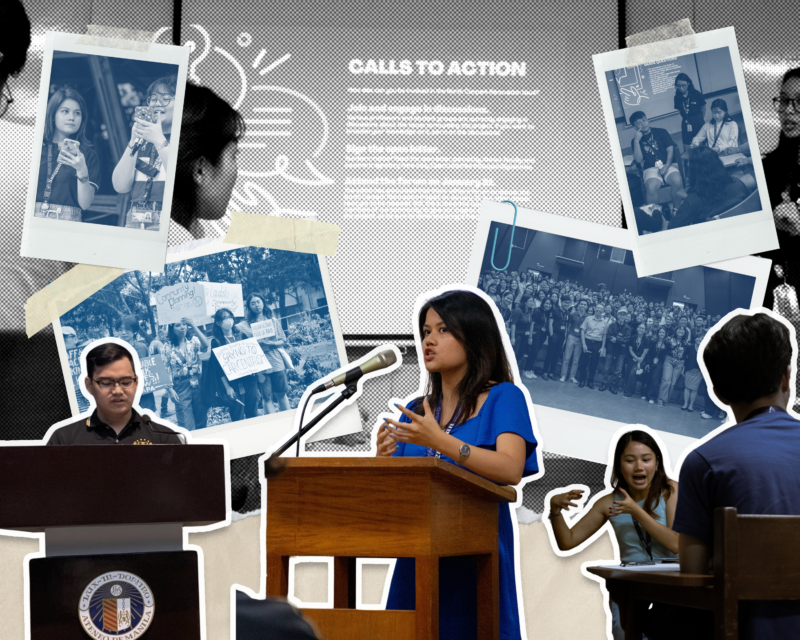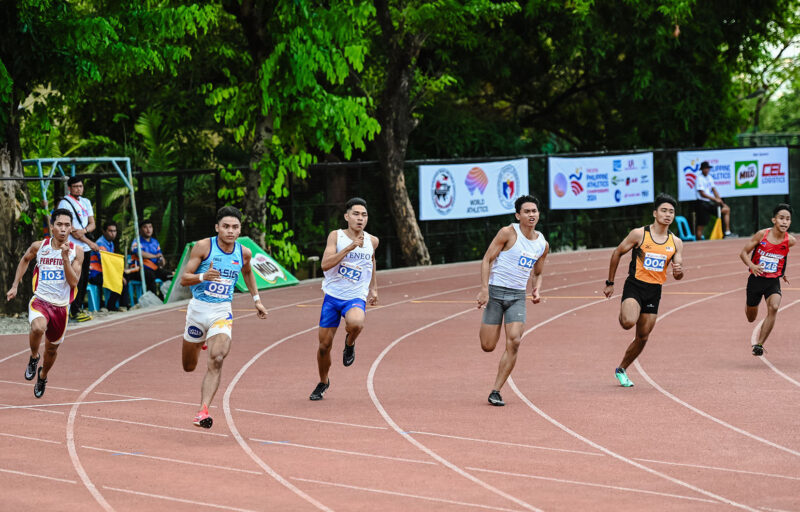TO ADDRESS issues arising from hunger, malnutrition and poverty, Gawad Kalinga (GK) held the Kusina ng Kalinga Anti-Hunger Summit on September 27 at the Ricardo and Dr. Rosita Leong Hall in partnership with the Ateneo de Manila University.
National and local government representatives comprised the different panels in discussing existing initiatives and planned proposals to alleviate the hunger problem in the country.
Senator Grace Poe, Senator Win Gatchalian, Gawad Kalinga Executive Director Luis Oquiñena and Teduray Tribe Leader Lydio Dismanos discussed the impact of hunger and poverty on a national scale while Compostella Valley Governor Tyron Uy, San Isidro Mayor Susan Ang and Mercedes Mayor Alex Pajarillo presented local community challenges in addressing hunger.
Former Ateneo President Ben Nebres, SJ, Valenzuela City Mayor Rex Gatchalian, and Valenzuela City Vice-Mayor Lorena Natividad also discussed the effectivity and repercussions of community-driven initiatives in ending hunger.
Meanwhile, Rajah Buayan Mayor Zamzamin Ampatuan and Sarmiento West Elementary School Principal Trathata Tarapas presented the hunger and malnutrition problems in context with the armed conflicts and educational situation present in Maguindanao.
Various municipal representatives, mayors, journalists and students participated in the event.
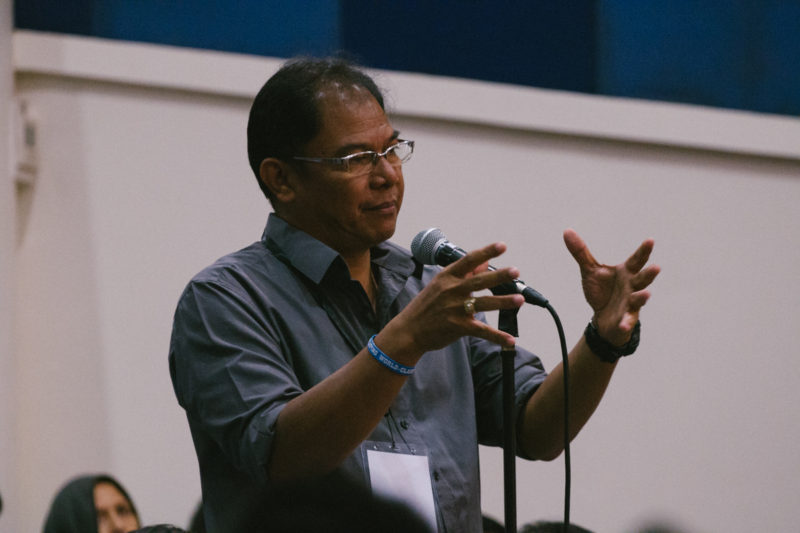
National response to hunger and poverty
Oquiñena noted that discussing and scaling solutions for hunger would be a difficult task because “in an attempt to find these solutions, the children will just keep getting hungrier [each day].”
In solving the hunger issue, Oquiñena explained that Gawad Kalinga wanted to provide a system that allowed an easier distribution of resources and aid. “We wanted to have a sort of ‘delivery system’ (Kusina ng Kalinga) that provided the children with access to proper nutrition,” he said.
Oquiñena noted that this initiative doesn’t aim to provide momentary relief to hunger but instead to work towards the children’s progressive well being – “something that works better in the long run,” he said.
Moreover, Sen. Poe said that the national administration should look more towards poverty as the root problem of the country.
“Naniniwala rin ako na kahit mahalaga ang peace and order, ang pinaka-ugat pa rin ng problema ng bansa ay ang kahirapan (I also believe that even if it is important to attain peace and order, the root cause of the country’s problems is still poverty),” she said.
According to her, the problem of hunger and malnutrition extends to isolated communities who aren’t directly affected by economic growth. In an interview with The GUIDON, Sen. Poe said that the current government’s response is not enough.
“The government has the capability to solve the problem on hunger. The problem is that it’s never been set as a priority in any administration— not just this one. If we focus our efforts into ending hunger, there shouldn’t be problems we can’t alleviate or even eliminate in the country,” she explained.
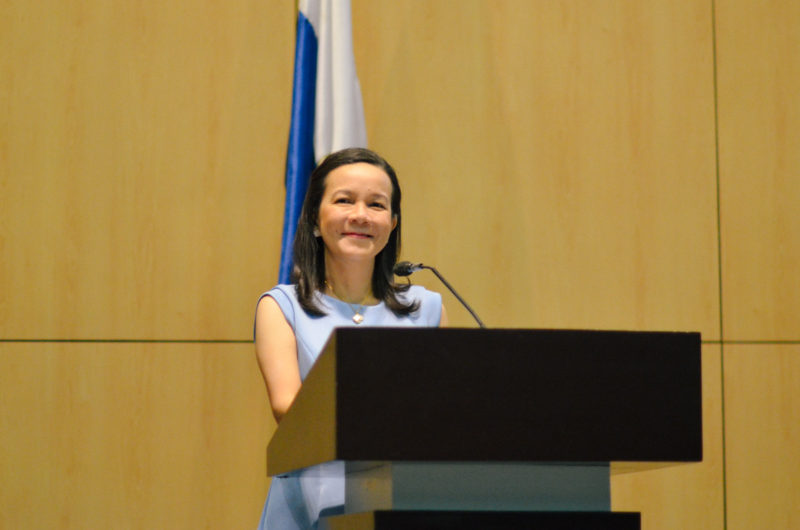
Setting local initiatives
Meanwhile, Ang explained that the main goal in alleviating hunger in San Isidro, Leyte is through better provisions for farmers. She observed in her community that it was a problem for farmers to provide food security because of the higher costs in comparison to their earnings.
“We will intensify our system by providing seeds, technical aid, fertilisers and continuous monitoring to see that our farmers earn,” she said.
Pajarillo, on the other hand, said there needs to be a structured and systematic approach to solving issues on hunger and malnutrition. In his municipality, Pajarillo shared the benefits of having a Central Kitchen Project that worked with local government units and the efforts of the Department of Education (DepEd) in providing food support.
“It’s important for both the DepEd and LGUs to cooperate for the succesful implementation of these initiatives,” he said.
Mayor Gatchalian shared the project cycle in executing local feeding programs in Valenzuela City. He explained that there is an observance of protocols and a systematic approach in monitoring the progress of these initiatives so that they can be sustainable in the long run.
He also cited volunteerism as an important factor in maintaining locally run initiatives.
“Without [our volunteers], the project might be less sustainable because of the need for labor fees. Beyond this, the initiatives are able to encourage people to participate in the spirit of community here in Valenzuela City,” he said.
